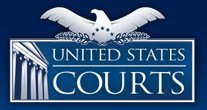 Google released the encrypted version of its search engine in beta on Friday, available at https://www.google.com. The SSL (Secure Sockets Layer) encryption protects your search query and search results while they are in transit between Google and your computer from third parties like ISPs (Internet Service Providers). SSL encryption does not protect your information from malware that may be running on your machine. The encryption only works for communications with Google, so it does not provide privacy when you click on a search result. Encrypted search does not yet work for Google Images or Google Maps, although SSL encryption has been in use by Gmail and Google Docs for some time. And though your information is protected from snoopy third parties, Google still knows and tracks the search terms you are entering and the results you are clicking.
Google released the encrypted version of its search engine in beta on Friday, available at https://www.google.com. The SSL (Secure Sockets Layer) encryption protects your search query and search results while they are in transit between Google and your computer from third parties like ISPs (Internet Service Providers). SSL encryption does not protect your information from malware that may be running on your machine. The encryption only works for communications with Google, so it does not provide privacy when you click on a search result. Encrypted search does not yet work for Google Images or Google Maps, although SSL encryption has been in use by Gmail and Google Docs for some time. And though your information is protected from snoopy third parties, Google still knows and tracks the search terms you are entering and the results you are clicking.
 Following the recent revamping of the U.S. Supreme Court’s extremely dated Web site, uscourts.gov just received a new, slicker interface. The new changes are primarily cosmetic but welcome—the site now has a cleaner, more sophisticated look with larger, size-adjustable font. The site is compatible with BrowseAloud, a free program that audibly reads Web sites for people who have trouble reading the text. Other new editions include email updates and an RSS feed of news about the judicial branch of the federal government and videos (the Web site hosts some videos and has a YouTube channel). Videos are directed toward a general audience and provide background information about the federal courts, working for the courts, and bankruptcy information, among other topics.
Following the recent revamping of the U.S. Supreme Court’s extremely dated Web site, uscourts.gov just received a new, slicker interface. The new changes are primarily cosmetic but welcome—the site now has a cleaner, more sophisticated look with larger, size-adjustable font. The site is compatible with BrowseAloud, a free program that audibly reads Web sites for people who have trouble reading the text. Other new editions include email updates and an RSS feed of news about the judicial branch of the federal government and videos (the Web site hosts some videos and has a YouTube channel). Videos are directed toward a general audience and provide background information about the federal courts, working for the courts, and bankruptcy information, among other topics.
Uscourts.gov provides news and information about the federal courts, job openings, judges, forms and fees, rules and policies, and educational resources, for example:
- filing fees
- post-judgment interest rates
- legal term glossary
- court locator
- jury service
- subpoena regulations
- caseload, management, and bankruptcy data
- federal rules of practice, procedure, and evidence and how they are made
- judicial compensation
- biographies of judges
- PACER court documents (fee required)
The site also offers text and videos explaining bankruptcy and the bankruptcy process and resources for high school teachers including material for mock trials.
 HeinOnline’s World Constitutions Illustrated is a great new resource for comparative constitutional law research. It contains the current constitution for every country; past constitutions; substantial constitutional histories for the United Kingdom, France, Brazil and Colombia (among others); more than 800 classic books about constitutional law; more than a dozen legal periodicals focused on constitutional law; links to scholarly articles and online resources, and bibliographies of important works. Every country is linked directly to its primary and secondary resources; for instance, you can go to France and view all the resources related to the constitutional and political development of the country, all in one place. The publisher invites librarians, scholars, and constitutional law experts from all over the world to contribute their works and knowledge to help continue building the constitutional development for every country.
HeinOnline’s World Constitutions Illustrated is a great new resource for comparative constitutional law research. It contains the current constitution for every country; past constitutions; substantial constitutional histories for the United Kingdom, France, Brazil and Colombia (among others); more than 800 classic books about constitutional law; more than a dozen legal periodicals focused on constitutional law; links to scholarly articles and online resources, and bibliographies of important works. Every country is linked directly to its primary and secondary resources; for instance, you can go to France and view all the resources related to the constitutional and political development of the country, all in one place. The publisher invites librarians, scholars, and constitutional law experts from all over the world to contribute their works and knowledge to help continue building the constitutional development for every country.



